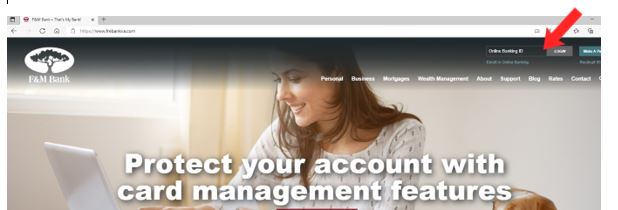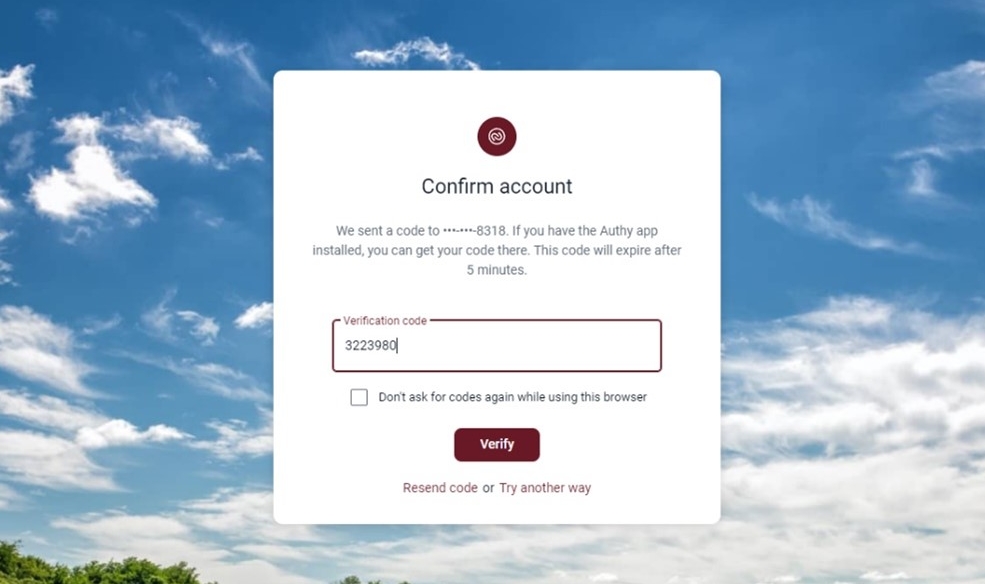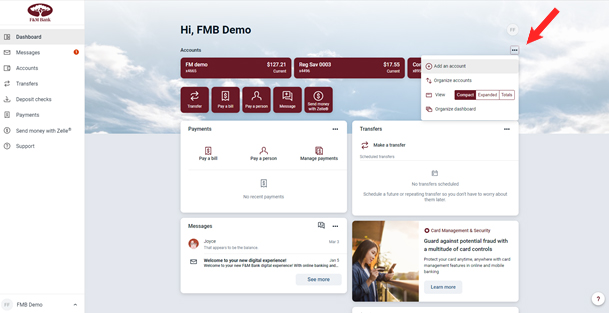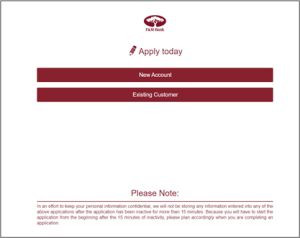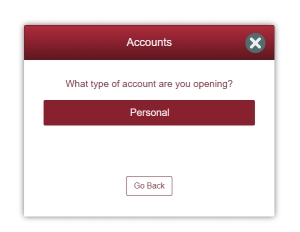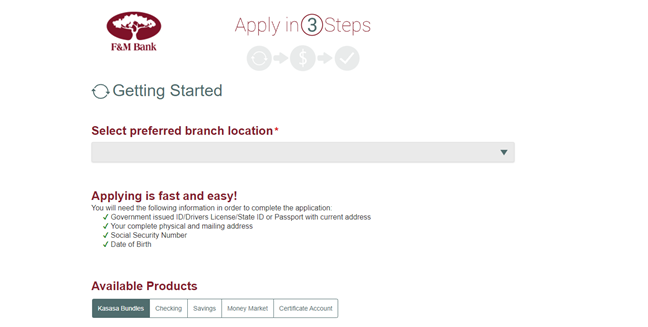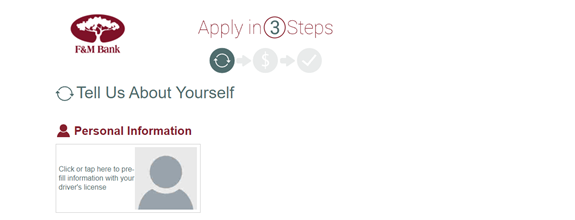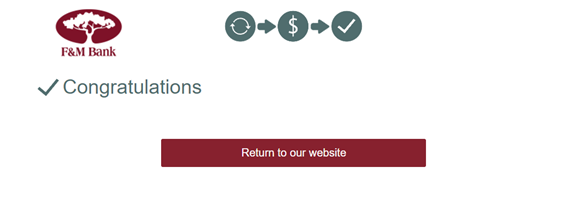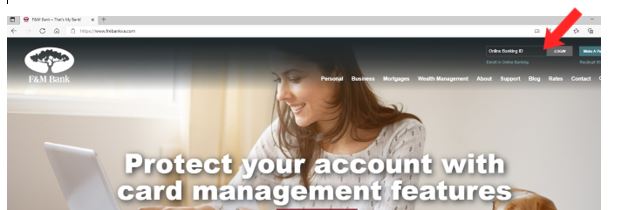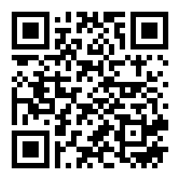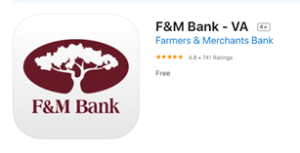Guide to VHDA Mortgages for First-Time Homebuyers
Buying a home in Virginia is an exciting process that you have probably been looking forward to for years. If you are a first-time homebuyer, the process of choosing a mortgage lender, deciding on a mortgage type, and applying for a home loan may seem intimidating.
At F&M Bank and F&M Mortgage, we have been helping Virginians achieve their dreams of homeownership since 1908. It is our goal to make the home buying process as simple as possible so that you can focus on the fun part – moving into your new home.
F&M Mortgage is proud to offer Virginia Housing Development Authority (VHDA) loans to the members of our community. These specialty home loans are designed to decrease some of the financial barriers that keep many Virginians from achieving their dreams. In this article we will outline the different types of VHDA loans, their specific loan requirements, and the mortgage loan application process. Let’s find out if a Virginia Housing loan is right for you!

What is a VHDA loan?
The Virginia Housing Development Authority (VHDA) is a not for profit, public mortgage finance company. Founded in 1972 to help Virginians afford quality housing, the program operates using no state taxpayer money. The VHDA relies on the private purchase of Virginia Housing Development Authority bonds to fund its loan and grant programs. The VHDA focuses on providing loans to first-time homebuyers and developers who build quality rental housing. Virginia Housing is currently celebrating their 50th anniversary and has helped over 240,000 Virginia families afford homes.
How does a VHDA home loan work?
While VHDA loans are targeted for first-time homebuyers, some loans are appropriate for repeat homebuyers as well. In order to help the most people with the most need, VHDA eligibility includes an upper limit on both the borrower’s income and the home price. VHDA loans are designed for borrowers with low to moderate incomes. Virginia Housing loans are 30-year fixed-rate loans with a low 3 percent down payment requirement. The VHDA also offers grants to help Virginians afford their down payments and closing costs.

What are the benefits of getting a VHDA home loan?
If buying a home seems financially out of reach, consider a VHDA home loan. F&M Mortgage offers VHDA loans because we support Virginia Housing’s proven track record of helping our community afford homeownership. Some benefits of a VHDA home loan include:
- Predictable payments with a 30-year fixed interest rate
- Small down payments
- Free homebuyer classes
- Pre-approval availability
- Low credit score requirement
Who is eligible for a Virginia Housing loan?
VHDA loans are only available for borrowers who intend to use the home as their primary residence. If you are planning to buy a home as an investment property, second home, use the house for a business, or sublet part of the space, you will not qualify for a VHDA loan.
Borrowers cannot have a net worth greater than 50 percent of the intended home purchase price. Your net worth calculation does not include retirement savings, life insurance plans, or the value of your belongings. Any cash that will be used to help fund your down payment will not be calculated into your net worth.
Income limits as well as home price limits for VHDA loans vary by region across the state. A table outlining these limits can be found on the Virginia Housing website. The maximum VHDA loan limit for a home in the Charlottesville area is $375,000. The two-person maximum gross household income for that area is $90,000. Limits vary by county so check with your lender for more specific amounts.
How do I apply for a VHDA loan?
Only VHDA approved lenders can offer Virginia Housing loans to the community. Approved lenders must comply with strict policies and requirements in order to qualify. Staff must be qualified and experienced with VHDA loans, adhere to Virginia’s fair housing policy, and demonstrate a proven track record of performance. F&M Bank is proud to be an approved VHDA lender.
To apply for a VHDA loan, stop by any F&M Bank location or apply online. To apply online:
- Simply click “Apply here for a mortgage” on F&M Bank’s VHDA mortgage webpage
- Create an account and complete the application.
- Complete the VHDA homebuyer class
The VHDA requires all applicants to complete their homebuyer education class before the loan can be approved. The class can be taken online or in a local classroom. This free class is available to anyone that wishes to learn more about the homebuying process and VHDA loans, even if you are not ready to apply for a loan.

What are the different types of VHDA home loans?
Virginia Housing Conventional
The Virginia Housing Conventional loan is available to both first-time and repeat homebuyers. Borrowers may use the loan to make a home purchase or fund a limited cash-out refinance. The Virginia Housing Conventional loan is a 30-year fixed-rate loan offering the lowest conventional mortgage insurance rates possible. Eligibility includes a minimum credit score of 640, 3 percent down payment, and maximum 45 percent debt-to-income ratio.
Virginia Housing Conventional – No Mortgage Insurance (NMI)
For borrowers with a higher credit score, the VHDA offers their conventional loan with no mortgage insurance. To qualify for the Virginia Housing Conventional – NMI loan borrowers must have a minimum credit score of 660.
Virginia Housing Plus Second Mortgage
If you need help funding your down payment and closing costs, you may consider a Virginia Housing Plus Second Mortgage loan. This option is technically two separate loans – one to pay for your new house and a second mortgage to cover your down payment. Both mortgages are 30-year fixed-rate loans with no prepayment penalties.
Only available to first-time homebuyers, this loan can cover your entire down payment amount as well as your home. At closing, borrowers must have 1 percent of the home purchase price available as cash. Borrowers with a higher credit score (680 or above) can also finance part of their closing costs in the second mortgage. The maximum second mortgage amount is 3 to 5 percent of the home purchase price.

Virginia Housing Loan Combo
If you are looking to get the most out of a VHDA loan, ask your F&M Mortgage Lenders if you qualify for a loan combo. The Virginia Housing Loan Combo bundles your VHDA loan with a down payment assistance grant and mortgage credit certificate (MCC) homebuyer tax credit.
Apply Today for a Virginia Housing Mortgage
Ready to get pre-approved for a VHDA loan? F&M Bank is an approved VHDA lender. Call us today for help choosing the right Virginia Housing loan. You can also start our online mortgage application or apply in person at your nearest branch.
F&M Mortgage, a division of F&M Bank, has been helping Virginians become homeowners in the Shenandoah Valley for more than a century. Don’t let the mortgage process overwhelm you. Our Mortgage Advisors pride themselves on offering friendly, personalized service, with the kind of local expertise you only find in people who live and work in your community. With VDHA pre approval you can start shopping for the house of your dreams in northern Virginia.









